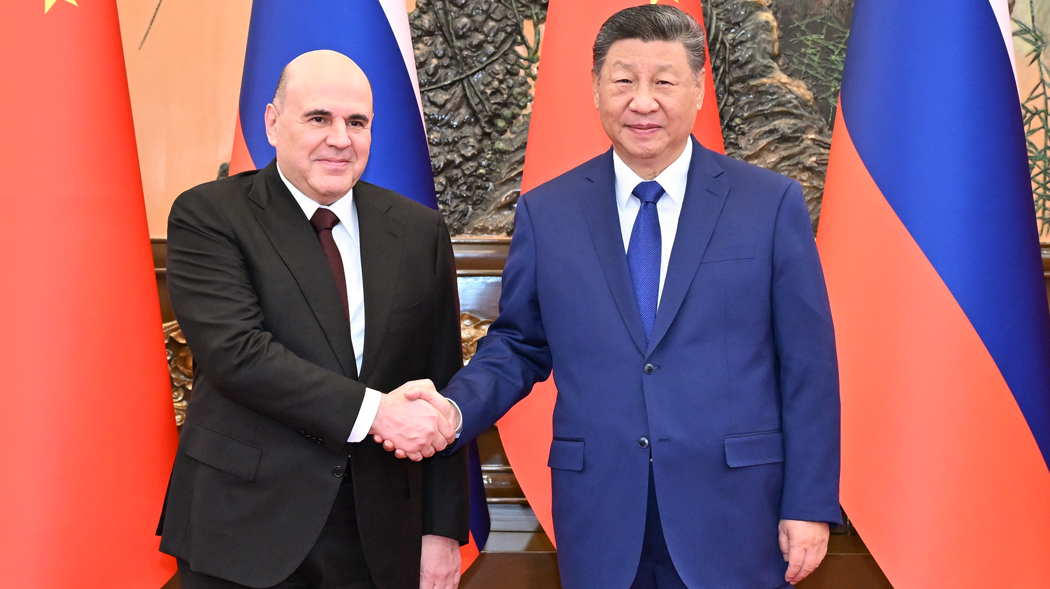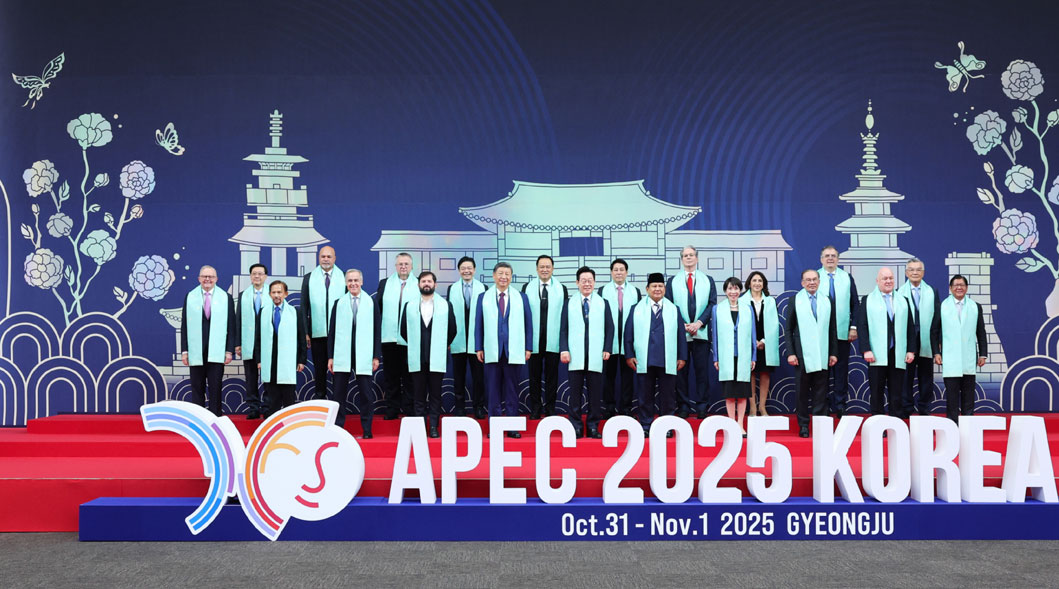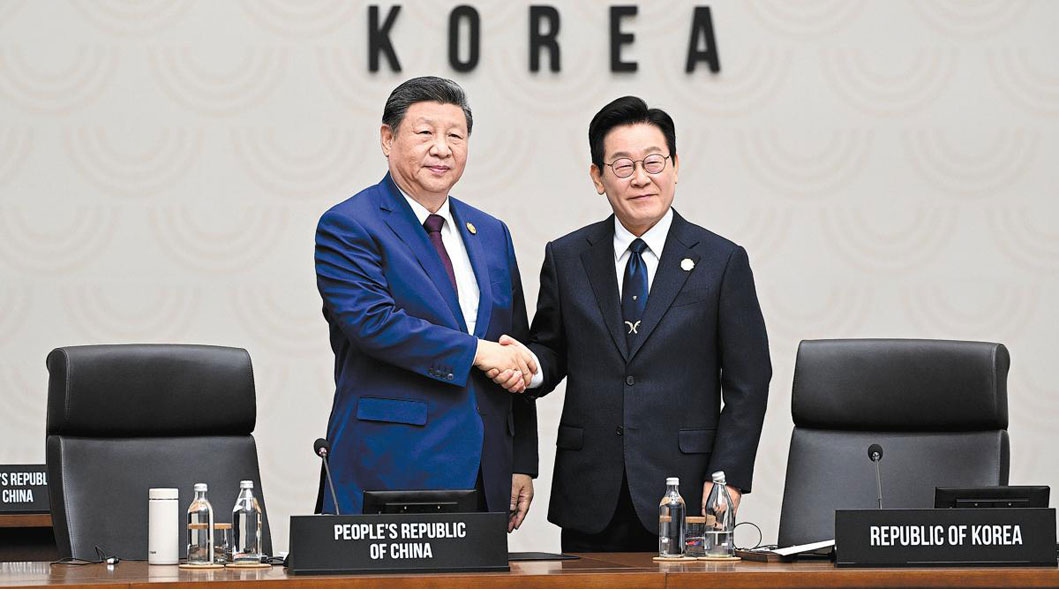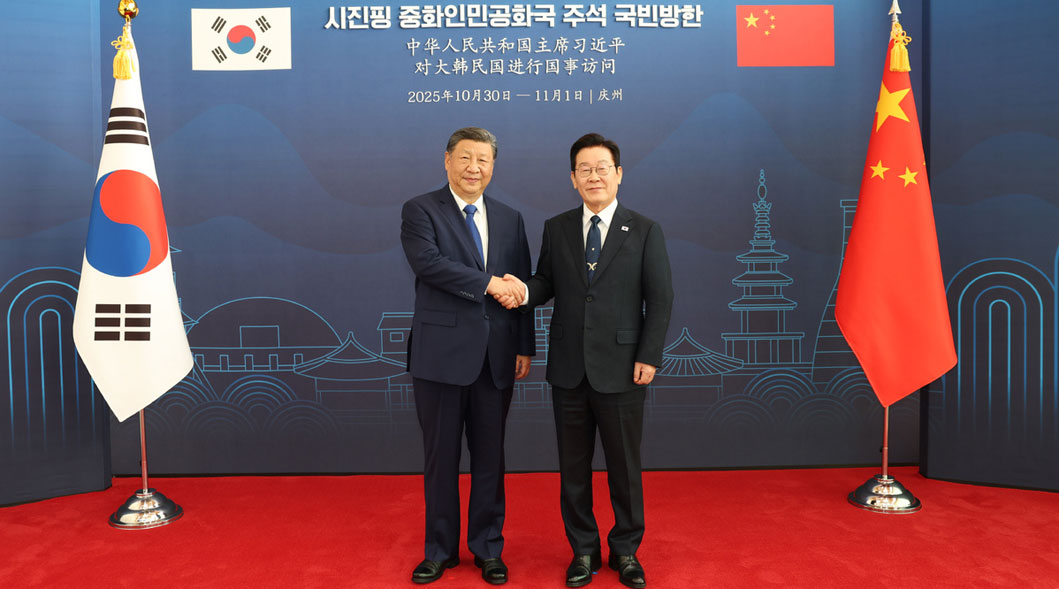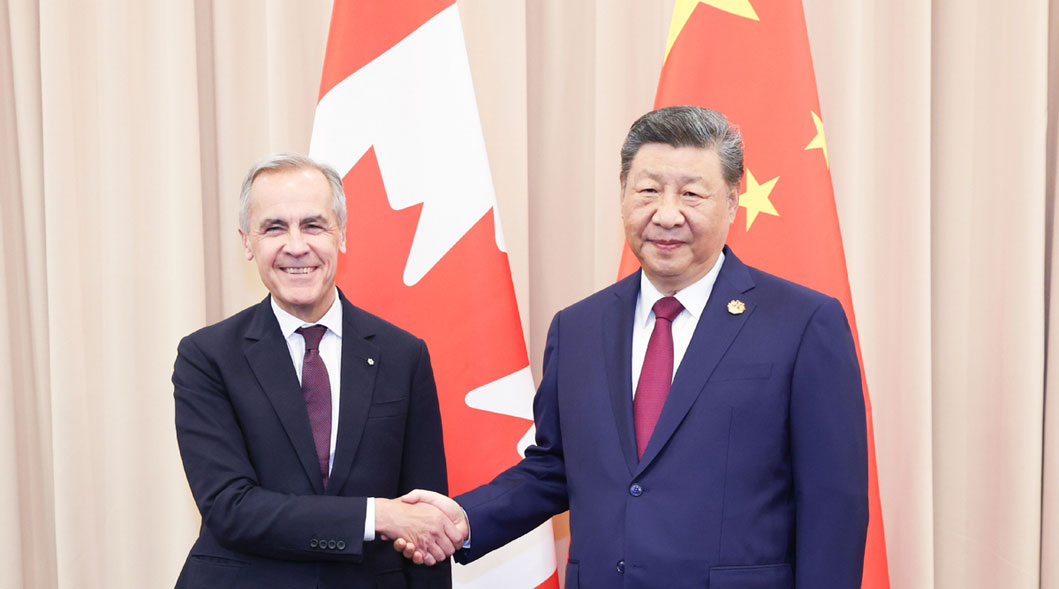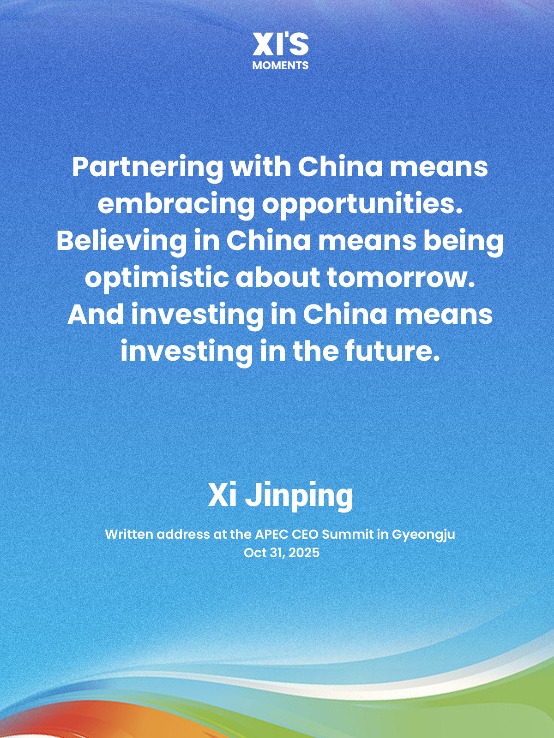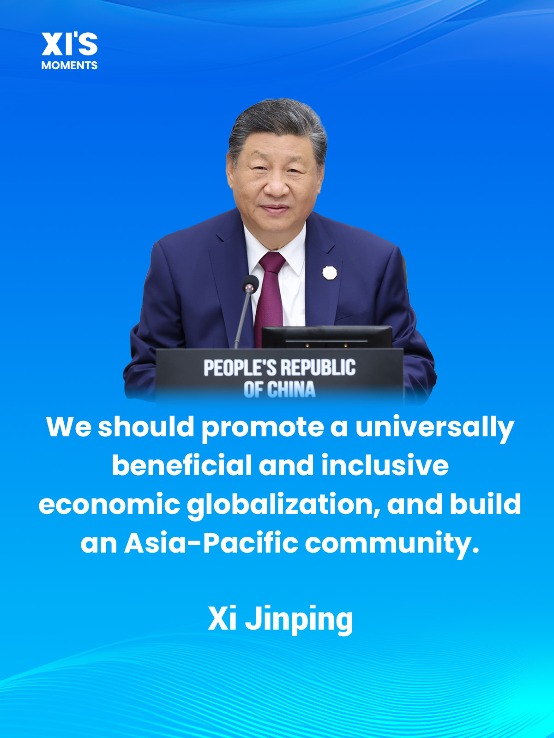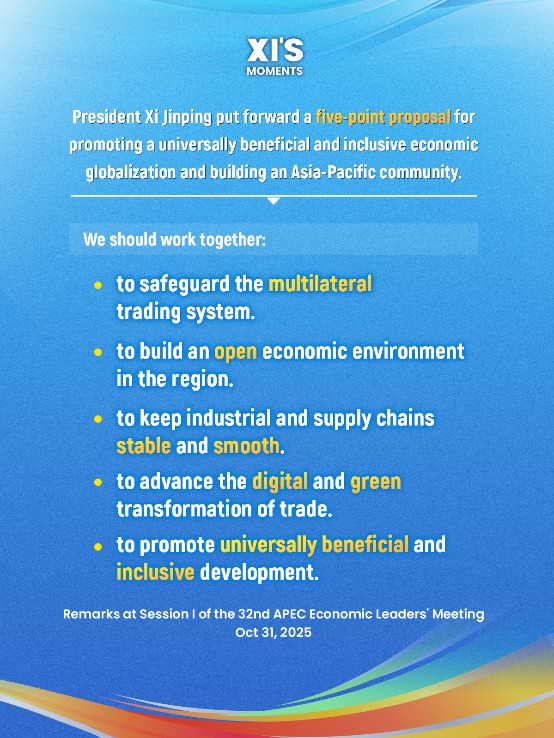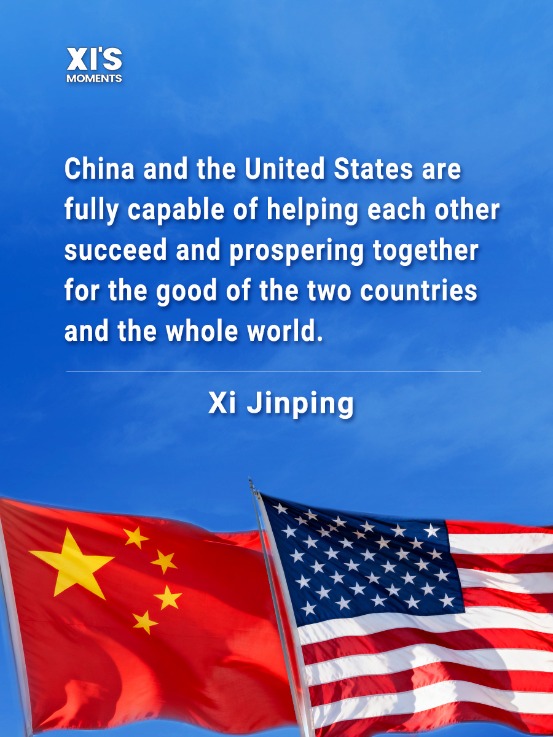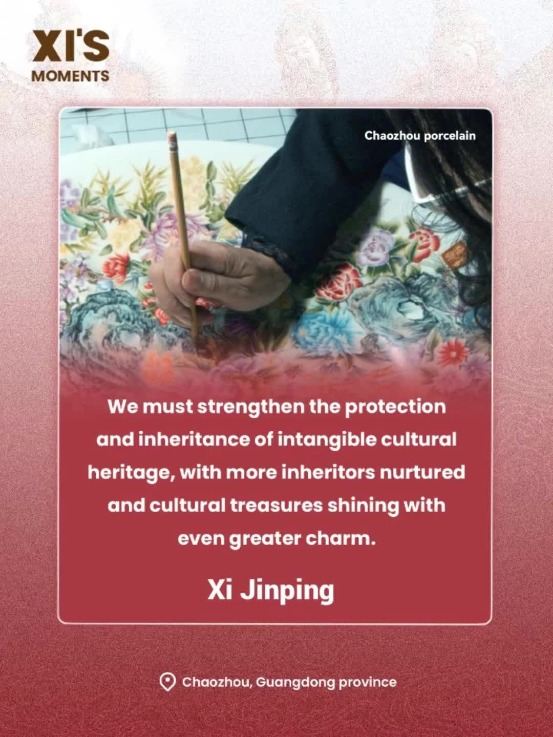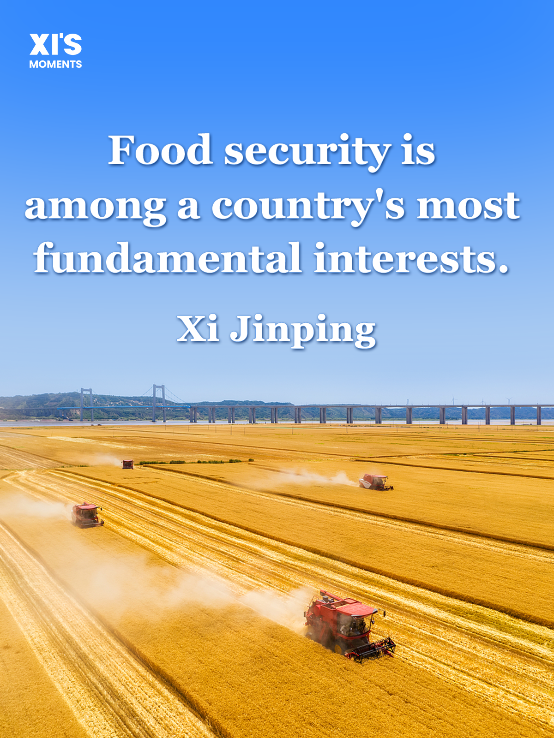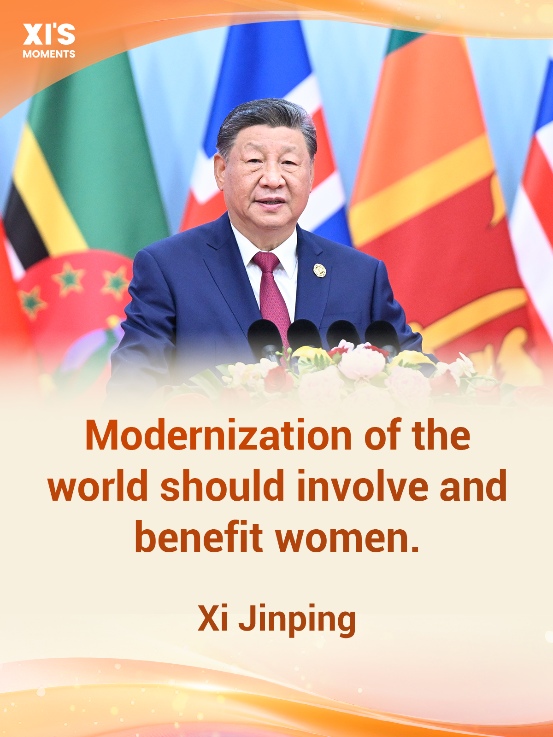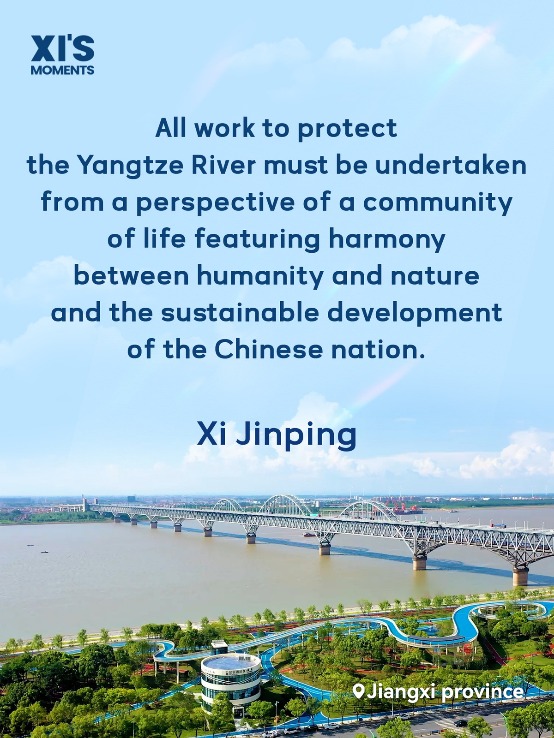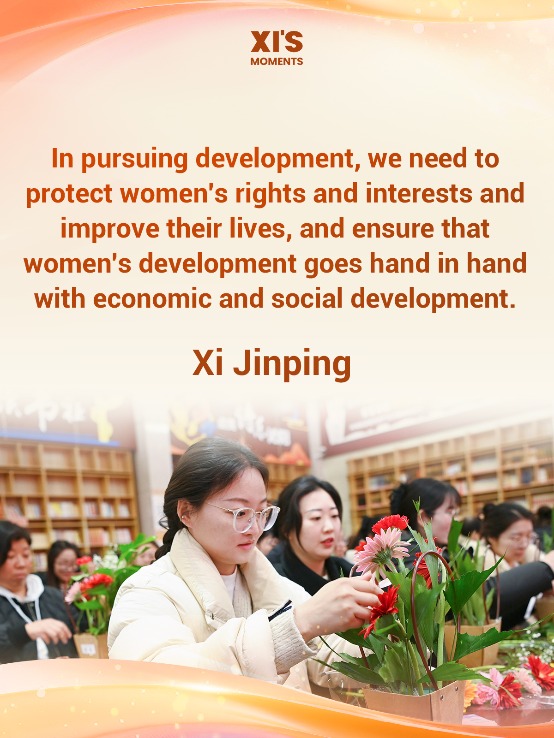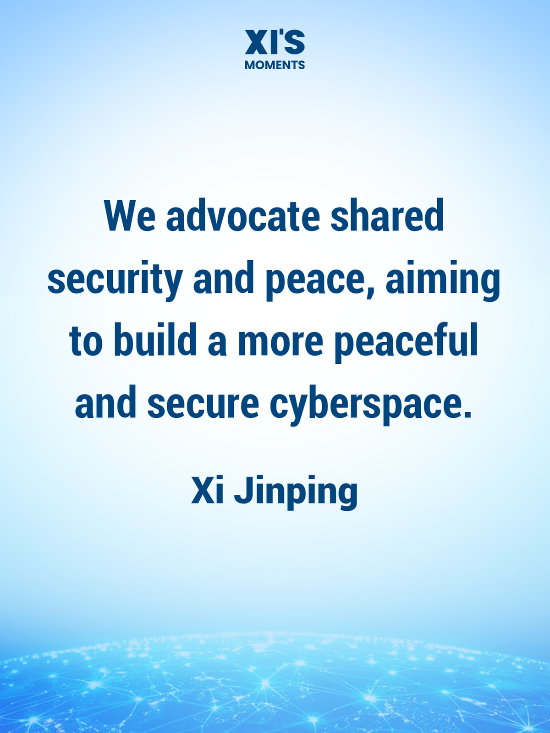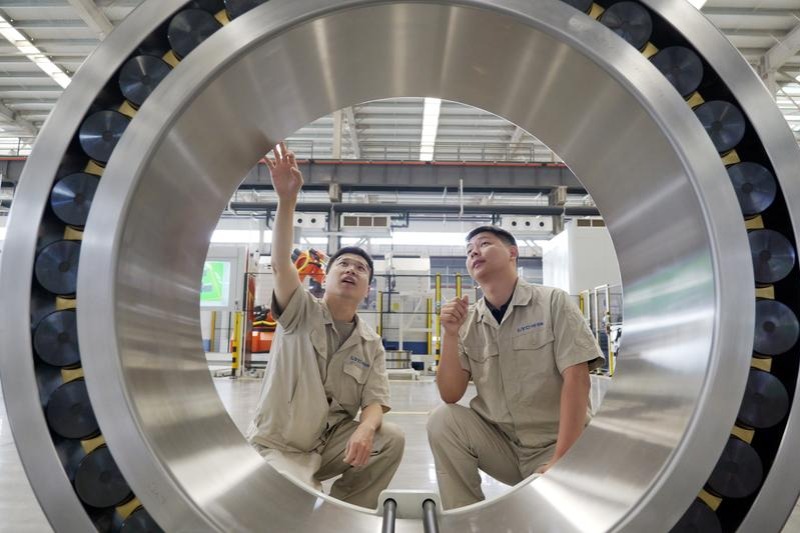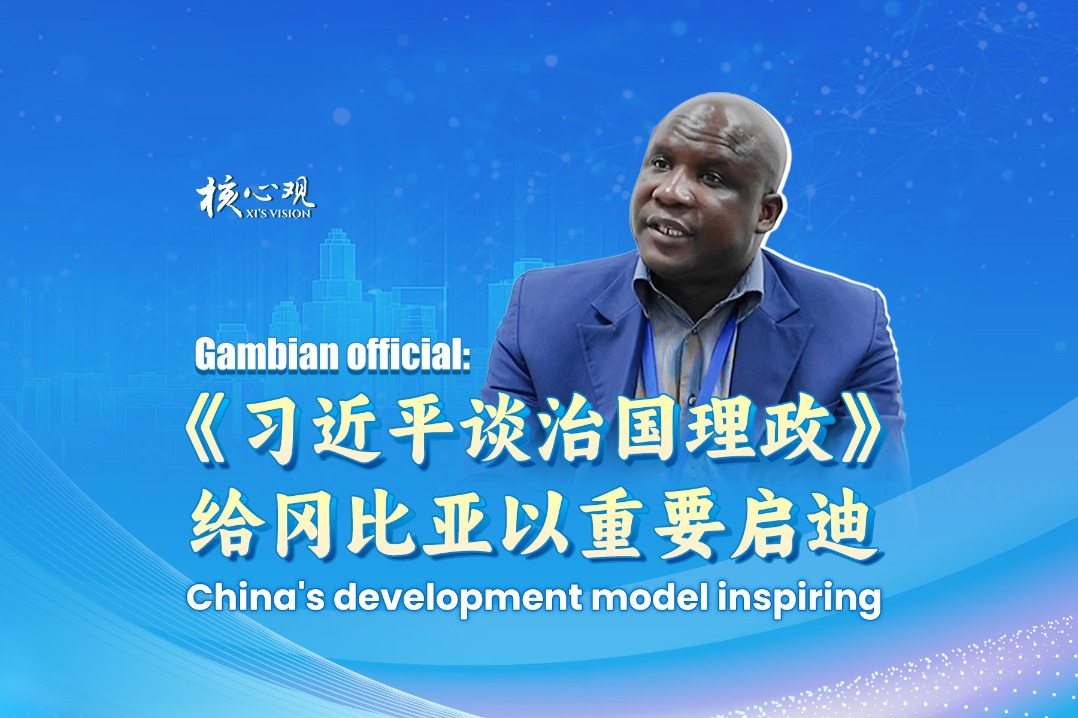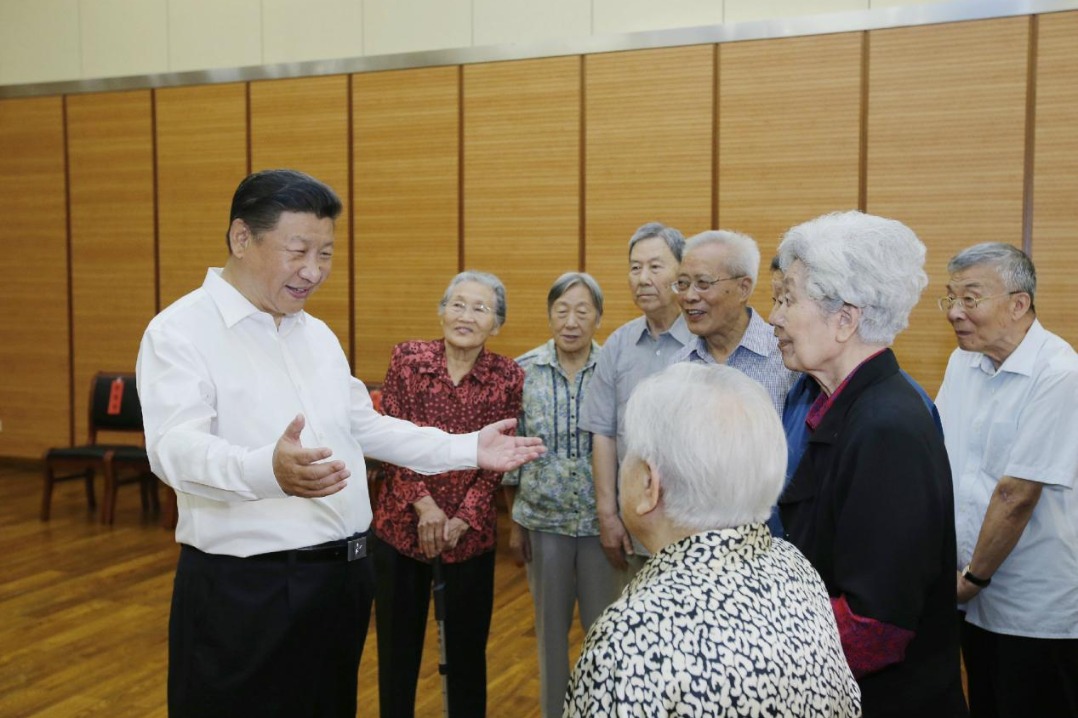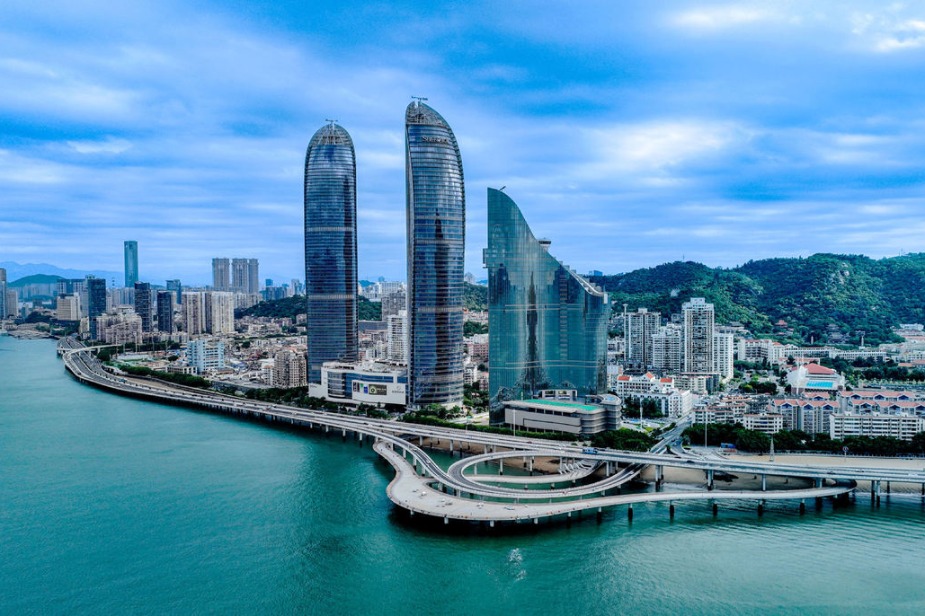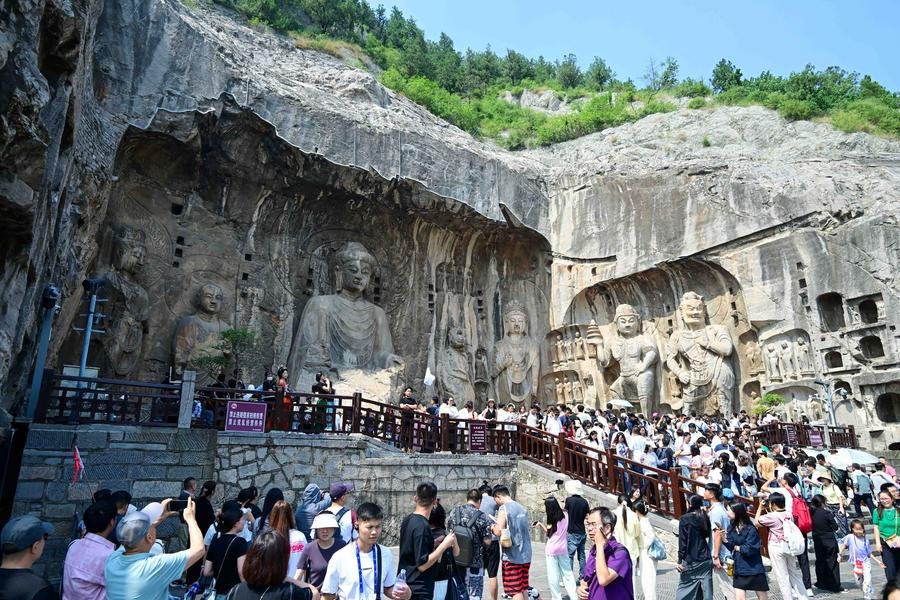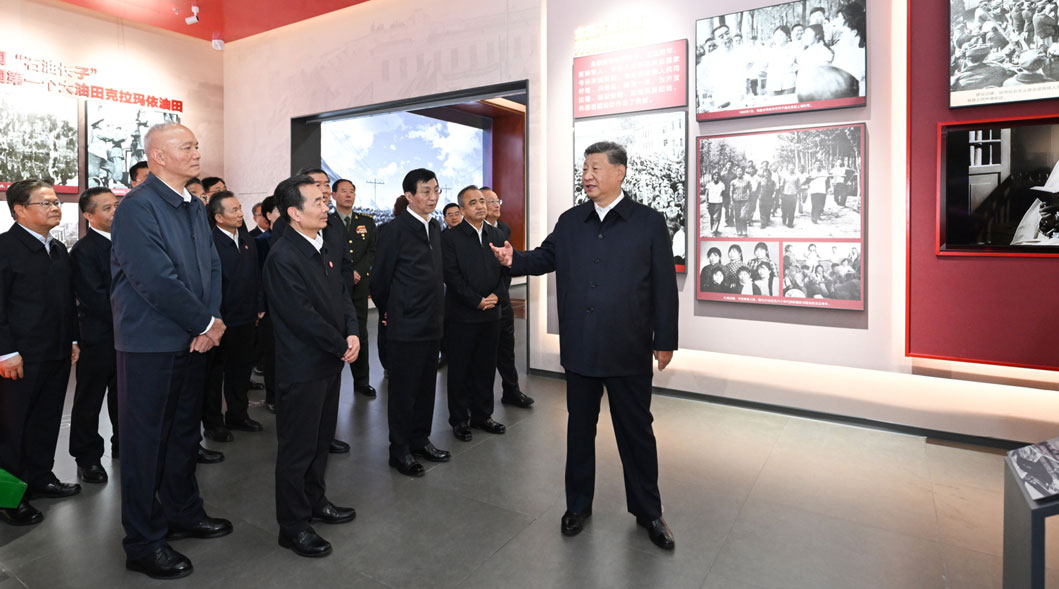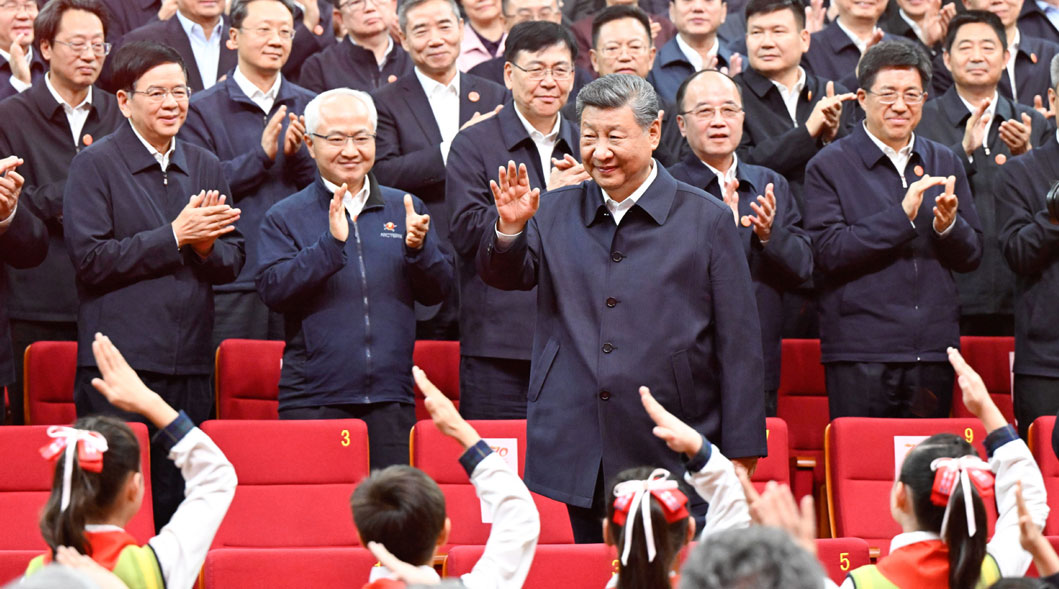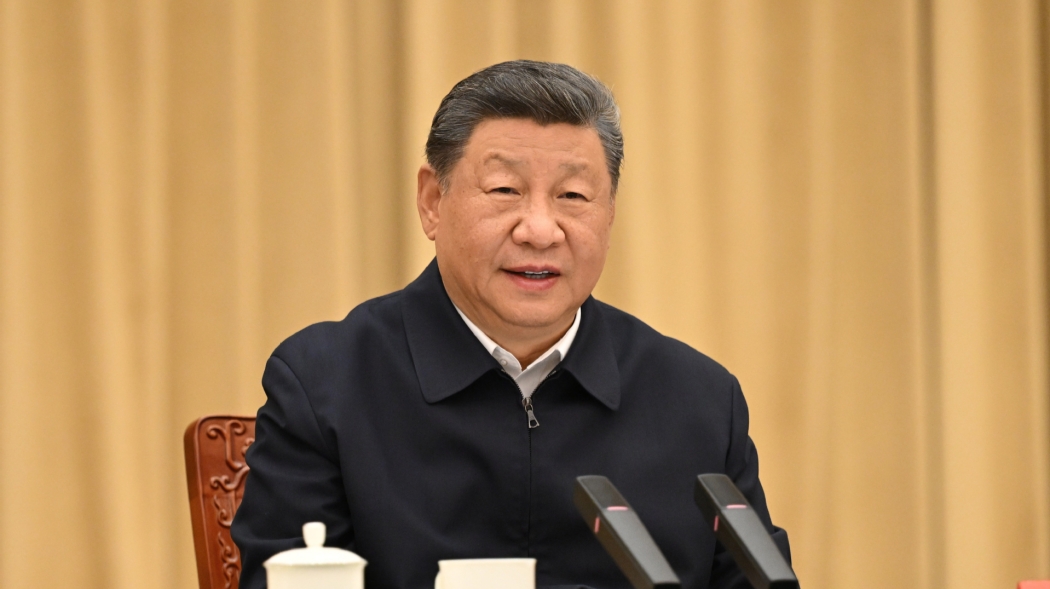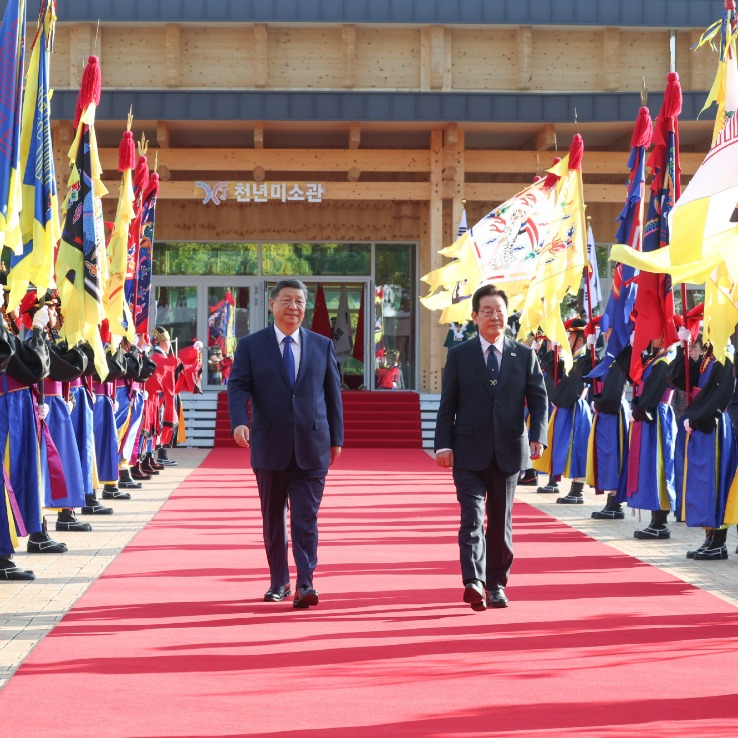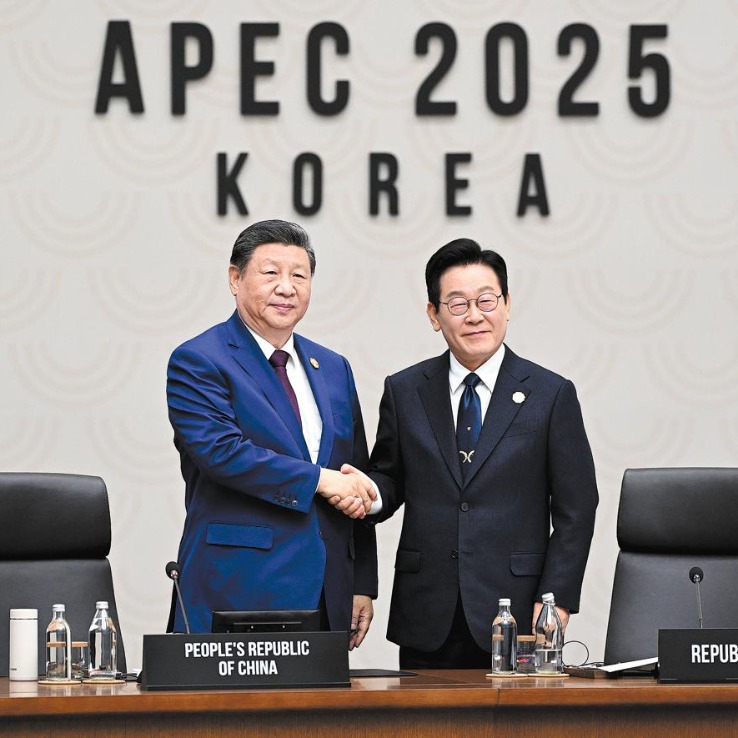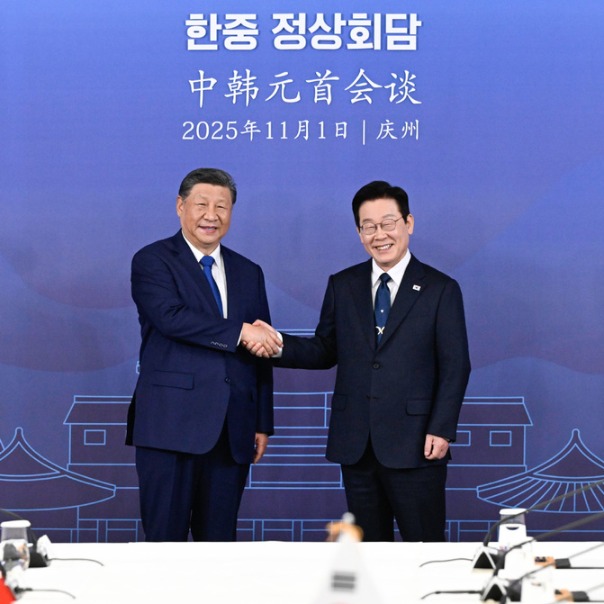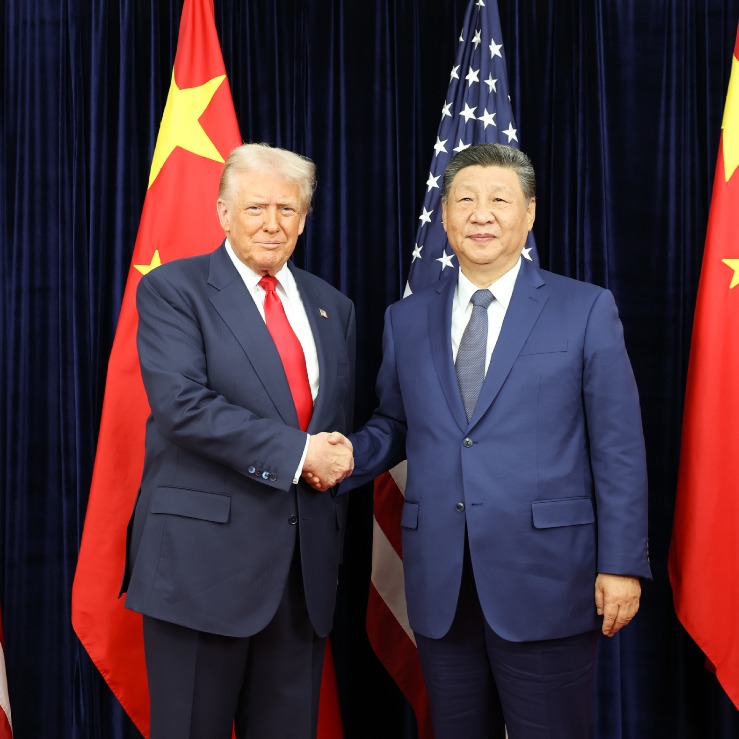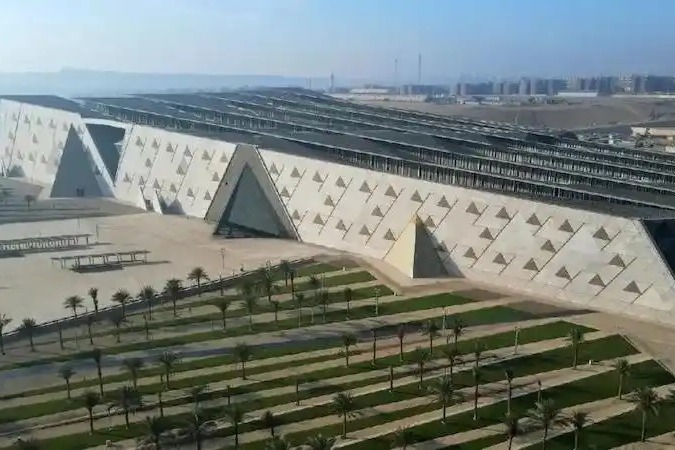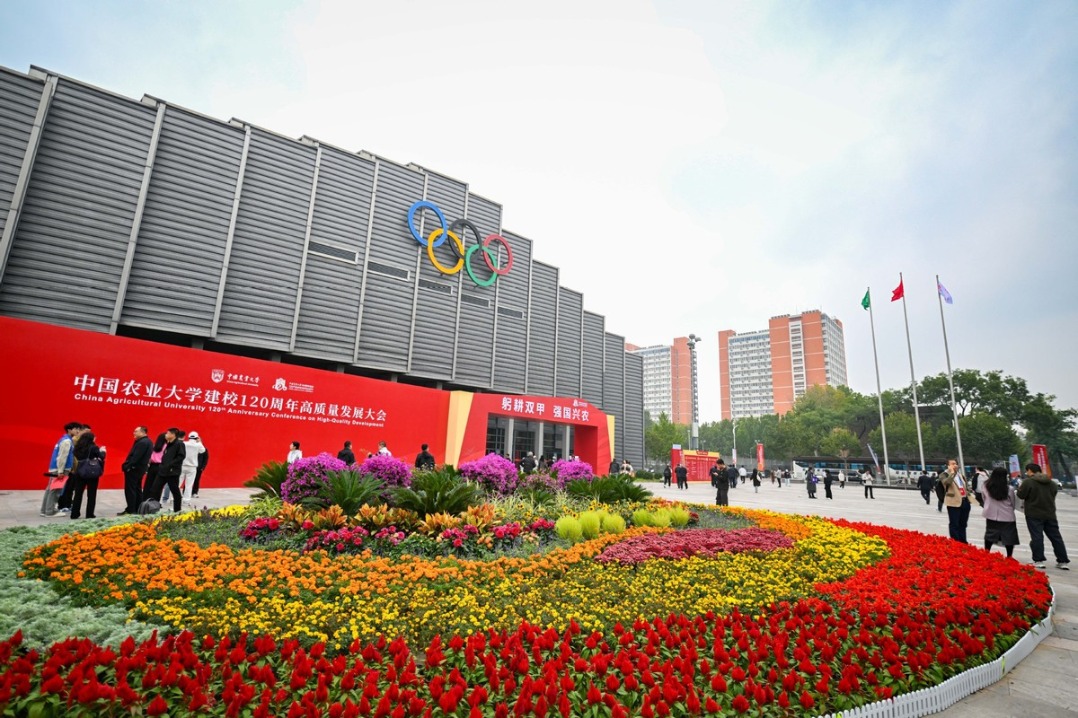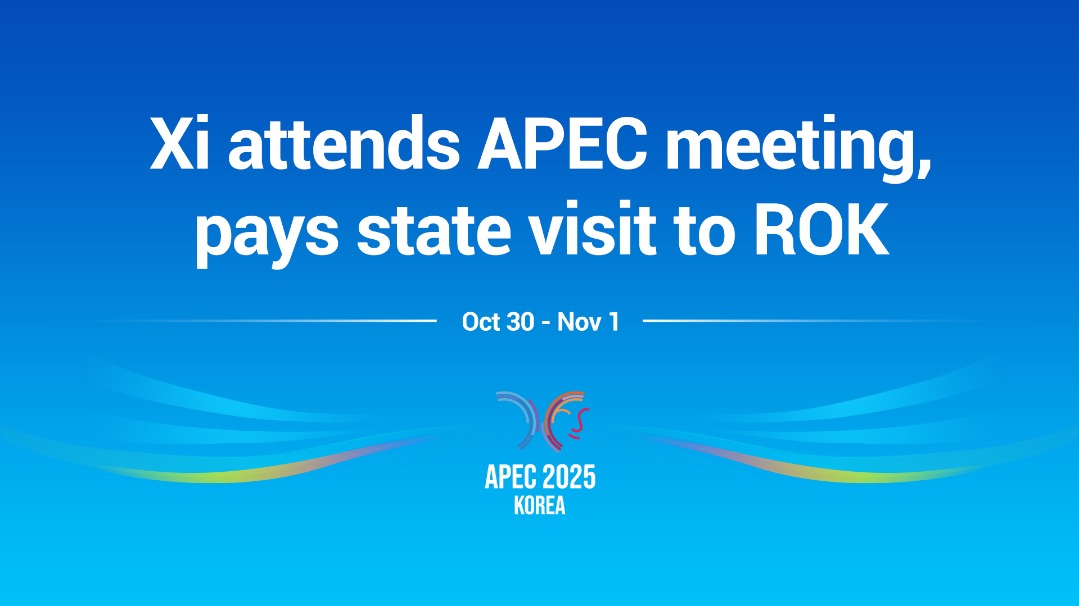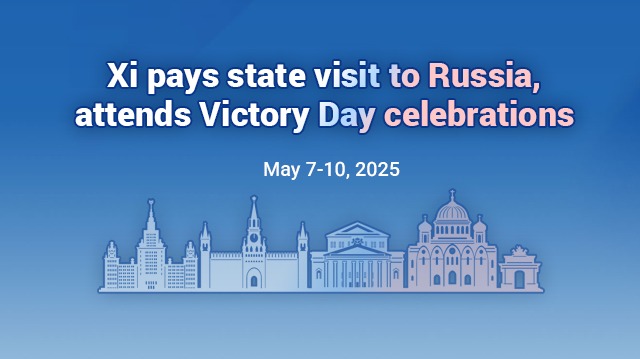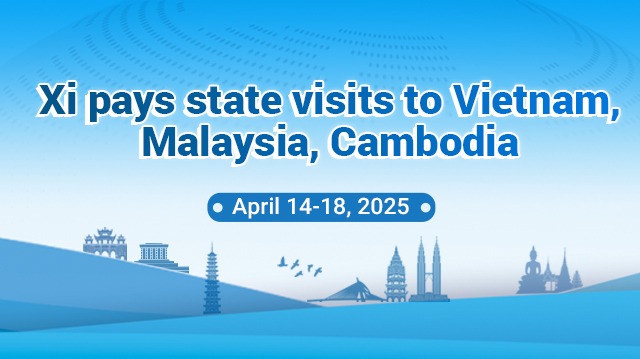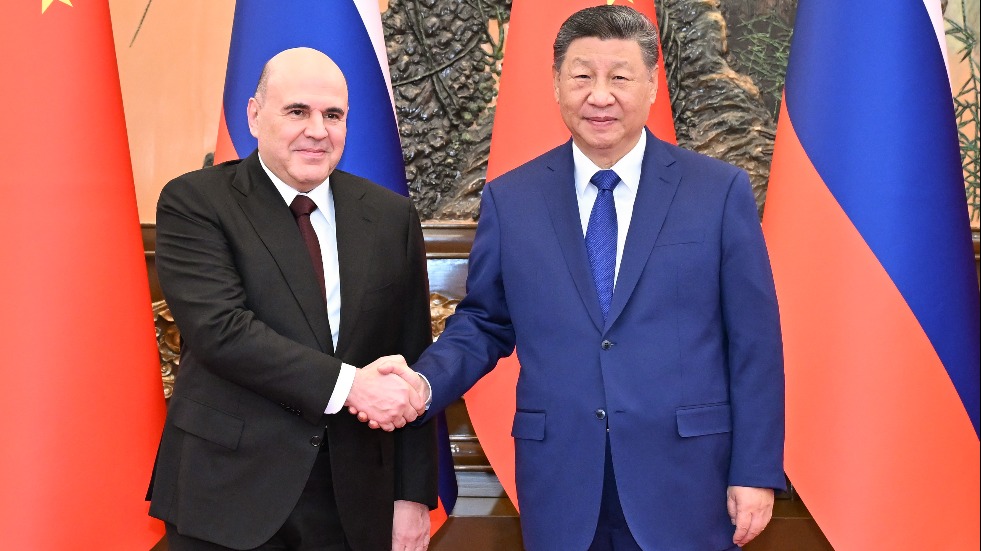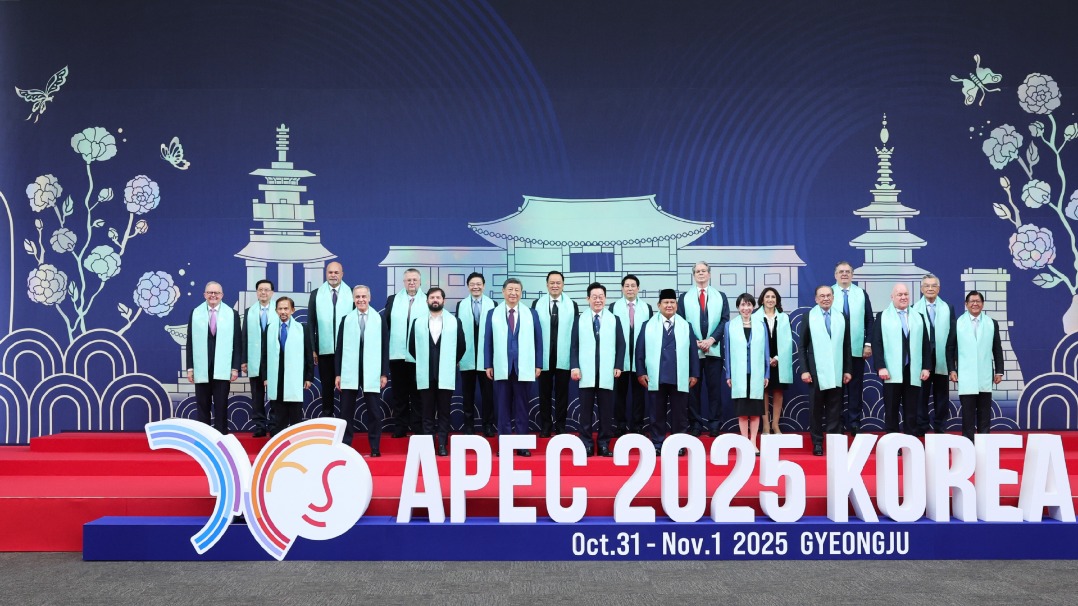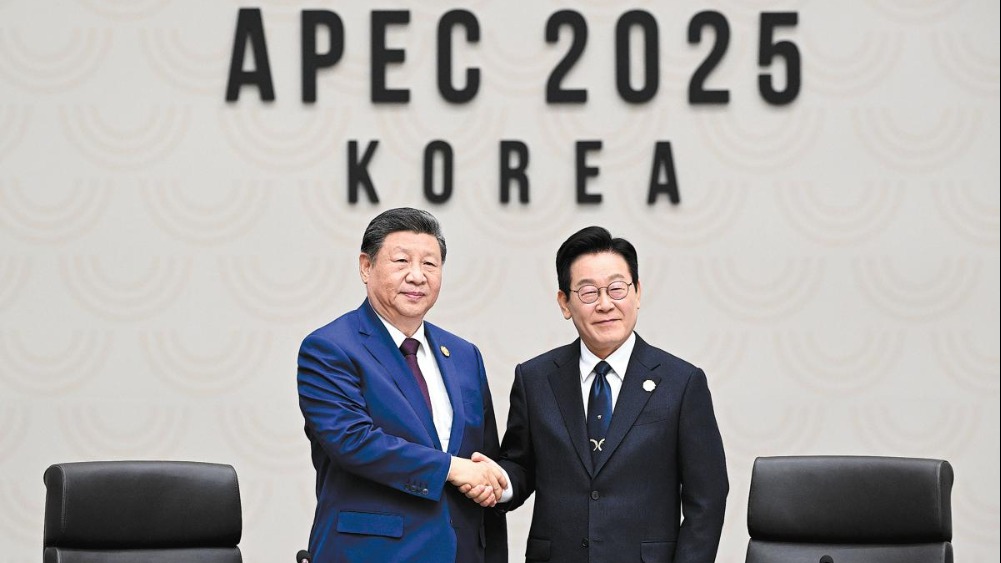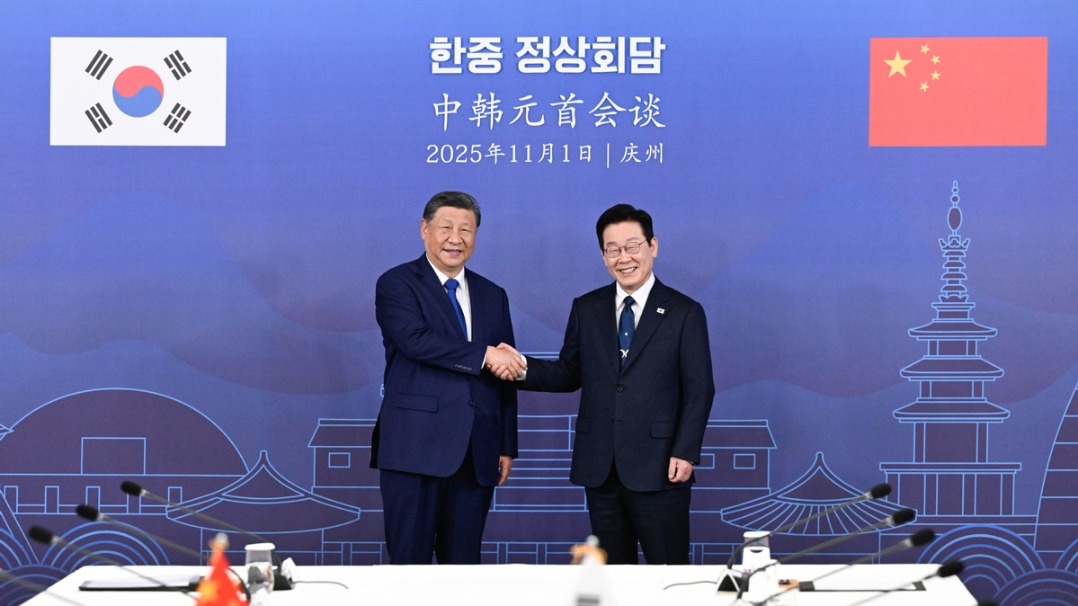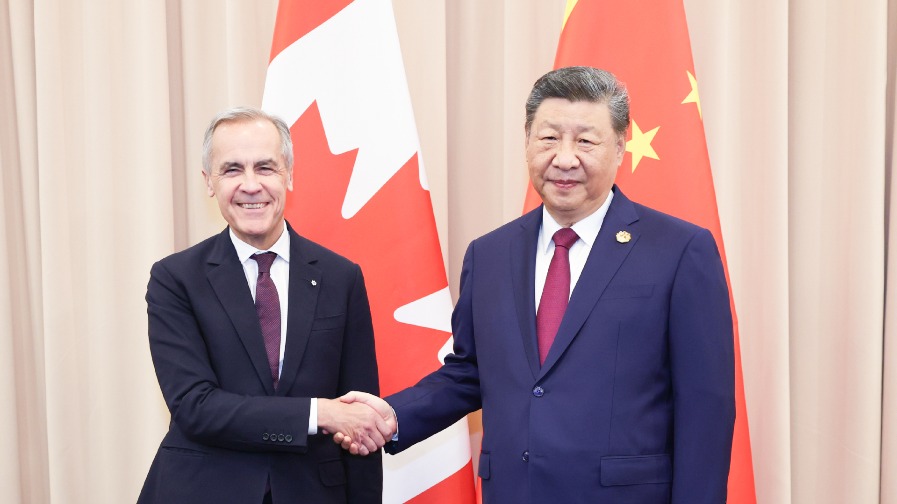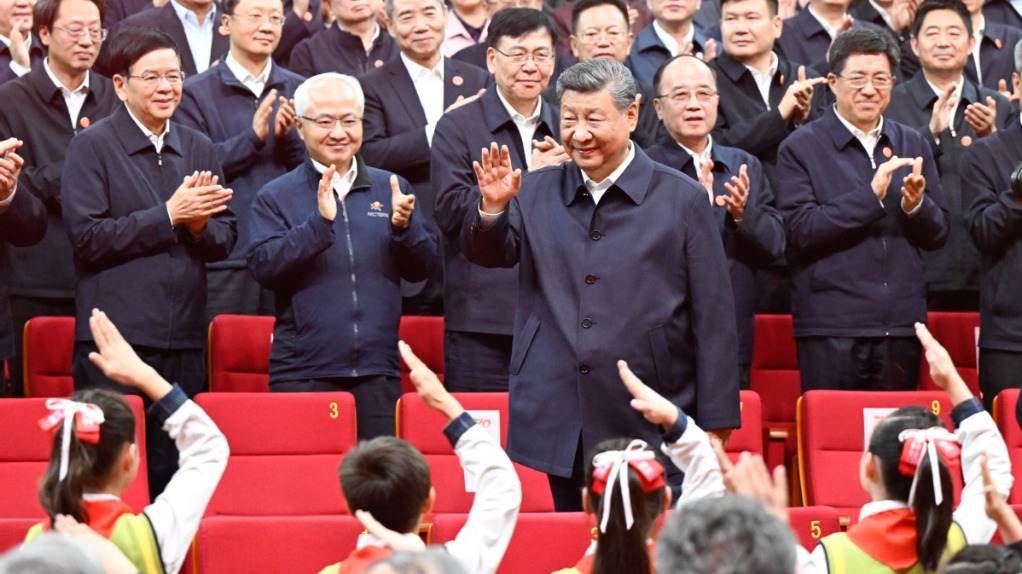
- Full text of Chinese President Xi Jinping's written speech at APEC CEO Summit
- Full text: Remarks by Chinese President Xi Jinping at Session I of the 32nd APEC Economic Leaders' Meeting
- Full text of Xi's keynote address at the Global Leaders' Meeting on Women
- Full text of Xi's statement at virtual BRICS Summit
- Full text of Xi Jinping's speech at the 'Shanghai Cooperation Organization Plus' Meeting
- Full text of Xi Jinping's speech at 25th Meeting of Council of Heads of State of SCO
- Full text: Toast by Chinese President Xi Jinping at welcoming banquet of SCO Tianjin Summit
- Full text of Xi Jinping's congratulatory letter to session of All-China Youth Federation and congress of All-China Students' Federation
- Full text of Xi's keynote speech at second China-Central Asia Summit
- Full Text: President Xi's keynote speech at the opening ceremony of the fourth ministerial meeting of the China-CELAC Forum
GYEONGJU -- Chinese President Xi Jinping delivered a written speech at the APEC CEO Summit on Friday under the title "Putting the Asia Pacific at the Forefront of the Joint Endeavor for World Development and Prosperity." Following is the English version of the full text of the speech.
Putting the Asia Pacific at the Forefront of the Joint Endeavor for World Development and Prosperity
Written Address by H.E. Xi Jinping
President of the People's Republic of China
At the APEC CEO Summit
Gyeongju, October 31, 2025
Representatives of the Business Community,
Ladies and Gentlemen,
Friends,
I am very pleased to visit the historic city of Gyeongju again for the APEC CEO Summit.
The world today is undergoing accelerated transformation unseen in a century, the international landscape is fraught with changes and turbulence, and global economic recovery remains sluggish. The world has come to a new crossroads -- solidarity, cooperation and mutual benefit or return of hegemonism and the law of the jungle; multilateralism, openness and inclusiveness or unilateralism and protectionism. What we choose will profoundly affect the future of the world. We must have vision, step up to our responsibility, and choose what meets the expectation of the people in the Asia Pacific and stands the test of history.
As the saying goes, "He who knows the past understands the present." Since the great victory of the World Anti-Fascist War 80 years ago, the international system with the United Nations at its core has been put in place gradually, and multilateral systems in economic, trade, financial and other areas have been established. A new chapter was opened for humanity's pursuit of peace and development.
History attests that humanity shares a common destiny. While hegemonism causes only war and disaster, fairness and justice ensure global peace and development. While confrontation and antagonism breed only estrangement and turbulence, win-win cooperation proves to be the right way forward. While unilateralism precipitates division and regression, multilateralism is the viable option for tackling global challenges.
China always upholds the current international order and practices true multilateralism. We embrace peaceful development, and reject the assertion that a strong country will inevitably seek hegemony. We champion win-win cooperation, and denounce winner-takes-all practices. We advocate mutual learning among civilizations, and do not believe in clash of civilizations. We promote fairness and justice, and oppose power politics. China has successively put forward the Belt and Road Initiative as well as the Global Development Initiative, the Global Security Initiative, the Global Civilization Initiative, and the Global Governance Initiative. They are China's solutions to the salient issues across the world, based on Chinese wisdom. We look forward to working with all parties to promote common prosperity and a win-win future for all, and building a community with a shared future for humanity.
Ladies and Gentlemen,
Friends,
Founded in response to the trend of economic globalization, APEC takes it as its objective and purpose to promote trade and investment liberalization and facilitation and support economic growth and prosperity. The 1991 Seoul APEC Declaration highlighted interdependence and shared benefit. Today, as we gather once again in the Republic of Korea, we should renew our commitment to the founding mission of APEC and make outstanding contributions to the world through more vibrant and resilient Asia Pacific cooperation.
First, we should take the lead in safeguarding peace and stability. We must always ensure the equal right of all countries to participate in international affairs regardless of their size, strength, or wealth. We should embrace the vision of common, comprehensive, cooperative, and sustainable security, and resolve differences and disputes through dialogue and consultation.
Second, we should take the lead in enhancing openness and connectivity. We should firmly safeguard the WTO-centered, rules-based multilateral trading system, strengthen solidarity and collaboration, oppose protectionism, reject unilateralism and bullying, and prevent the world from reverting to the law of the jungle. We must have the courage to remove barriers, keep global industrial and supply chains stable and unimpeded, advance regional economic integration, push forward the Free Trade Area of the Asia Pacific, and play the Asia Pacific part in global economic growth.
Third, we should take the lead in promoting win-win cooperation. We should stay true to the vision of harmony without uniformity, fully leverage the diversity of Asia Pacific economies, draw on each other's strengths, and jointly make the pie of Asia Pacific cooperation bigger. We should advance both our respective interests and those of others, and foster an environment of cooperation to achieve success and development for all economies.
Fourth, we should take the lead in pursuing benefits for all and inclusiveness. We should put the people first, and fully implement the U.N. 2030 Agenda for Sustainable Development. We should create greater synergy between our development strategies, and step up support for developing economies. We should bridge development gaps, increase people's well-being, and deliver prosperity to all the people in the Asia Pacific.
Next year, China will host APEC for the third time. This demonstrates our full commitment to Asia Pacific cooperation and our willingness to fulfill our responsibilities. We will follow the trend of the times, listen to the calls of APEC members, and work together to build an Asia Pacific community, so as to further boost peace and development in the Asia Pacific and the wider world.
Ladies and Gentlemen,
Friends,
China has been a major engine of world economic growth for many years. China's 14th Five-Year Plan period ends this year. In the past five years, despite increasing external shocks, the Chinese economy has registered an annual growth rate of around 5.5 percent on average, contributing around 30 percent of global growth.
A few days ago, the 20th Central Committee of the Communist Party of China adopted the Recommendations for Formulating the 15th Five-Year Plan at its fourth plenary session. We will continue to deepen reform and high-quality development through high-standard opening up, bring more stability and certainty to the Asia Pacific and world economy, and provide fertile soil for global investors and entrepreneurs.
-- China can provide more growth opportunities for the global business community. It is now the world's second largest market of consumption and import, and the only developing country that hosts a national-level international import expo and continually opens its market to the world. The China market is huge and promising. We are continually advancing high-standard opening up, and strive to help all sides succeed through greater openness and connectivity.
-- China can provide a good business environment for the global business community. China is fostering a market-oriented, law-based and world-class business environment to help companies of different types of ownership to grow and thrive through fair competition. There are only 29 items left on China's negative list for foreign investment, and zero items in the manufacturing sector. We will also continue to open the services sector. China is universally recognized as one of the safest countries in the world, and grants either unilateral visa exemption or full mutual visa-free entry to 76 countries. Sightseeing and shopping in China have become a popular trend in the world, and our foreign friends will find it more and more convenient to invest, work and live in China.
-- China can provide a vast platform of innovation for the global business community. We are vigorously developing future industries, strengthening emerging industries, and upgrading traditional industries. Innovation is steadily driving the economy forward. China is going green, digital and smart at a faster pace. Breakthroughs are being made one after another in AI, quantum technologies, humanoids, new-energy vehicles, and biomedicine. China is now a global destination for the promotion and application of new technologies. Facts have proved that whoever establishes a solid presence in the Chinese market will stay ahead of the curve in the increasingly fierce international competition.
-- China can provide enabling conditions of green growth for the global business community. China is making coordinated advances in decarbonizing, mitigating pollution, expanding green transition and promoting growth. It has the largest renewable energy system and the biggest, most complete new energy industrial chain in the world. The increased area of afforestation in China accounts for a quarter of the world total. We are committed to meeting our carbon peaking and carbon neutrality targets. We are actively advancing cooperation in launching green energy projects. We support the free flow of quality green technologies and products, and do our best to provide assistance to developing countries. China's contribution to the green and low-carbon transition of the global economy is widely recognized.
In short, China is an ideal, safe and promising destination for global investors. Partnering with China means embracing opportunities. Believing in China means being optimistic about tomorrow. And investing in China means investing in the future.
Ladies and Gentlemen,
Friends,
The Asia Pacific business communities are forerunners of our times, pioneers of change, and trendsetters of the world. I hope that you will carry forward the spirit of entrepreneurship, remain pioneering, open-minded, innovative and resilient, work together to promote Asia Pacific growth and prosperity, and forge a mighty force to usher in a great future for the Asia Pacific and the world. We sincerely invite you to China next year to advance our joint lofty cause.
Thank you!
Registration Number: 130349

